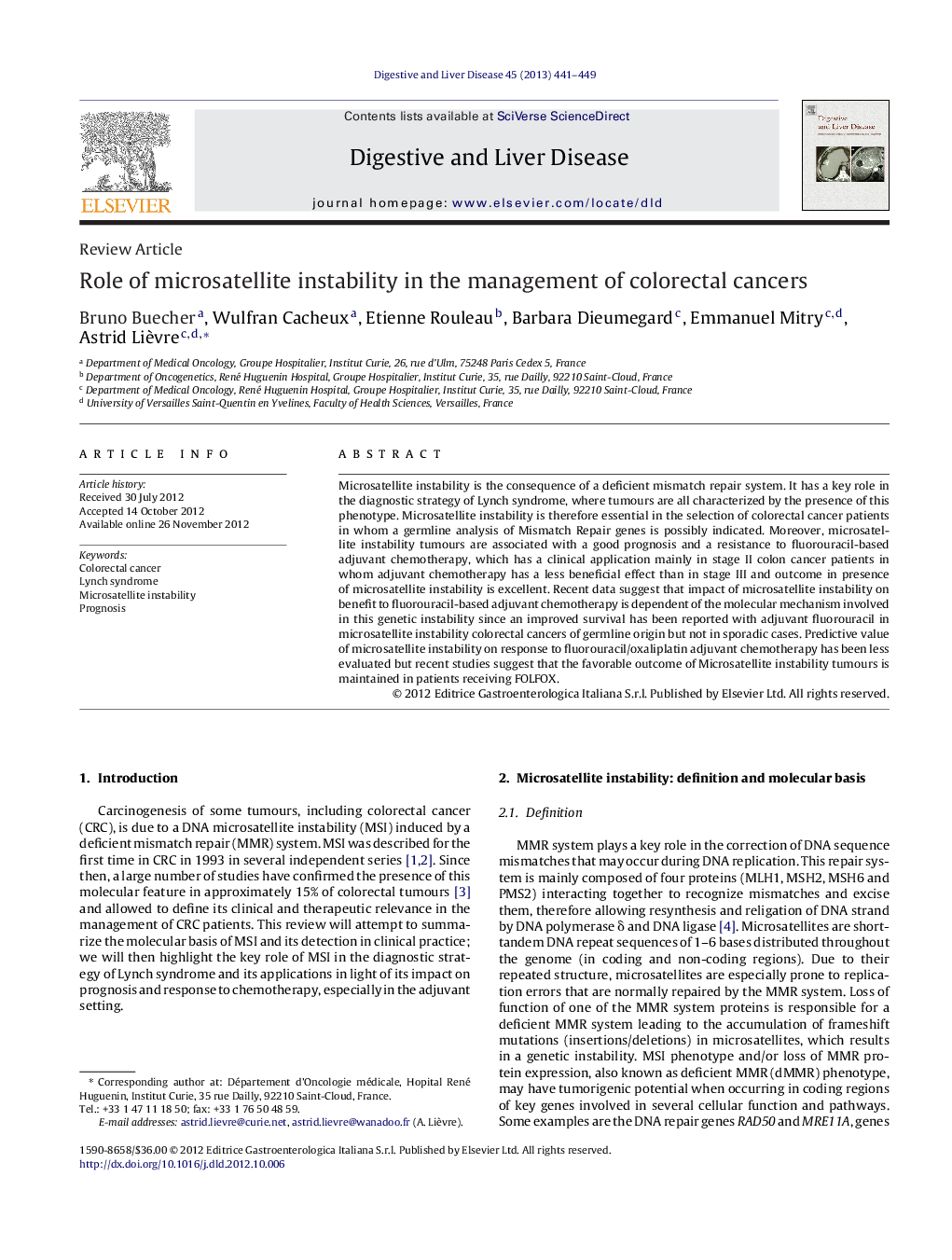| Article ID | Journal | Published Year | Pages | File Type |
|---|---|---|---|---|
| 3261958 | Digestive and Liver Disease | 2013 | 9 Pages |
Microsatellite instability is the consequence of a deficient mismatch repair system. It has a key role in the diagnostic strategy of Lynch syndrome, where tumours are all characterized by the presence of this phenotype. Microsatellite instability is therefore essential in the selection of colorectal cancer patients in whom a germline analysis of Mismatch Repair genes is possibly indicated. Moreover, microsatellite instability tumours are associated with a good prognosis and a resistance to fluorouracil-based adjuvant chemotherapy, which has a clinical application mainly in stage II colon cancer patients in whom adjuvant chemotherapy has a less beneficial effect than in stage III and outcome in presence of microsatellite instability is excellent. Recent data suggest that impact of microsatellite instability on benefit to fluorouracil-based adjuvant chemotherapy is dependent of the molecular mechanism involved in this genetic instability since an improved survival has been reported with adjuvant fluorouracil in microsatellite instability colorectal cancers of germline origin but not in sporadic cases. Predictive value of microsatellite instability on response to fluorouracil/oxaliplatin adjuvant chemotherapy has been less evaluated but recent studies suggest that the favorable outcome of Microsatellite instability tumours is maintained in patients receiving FOLFOX.
